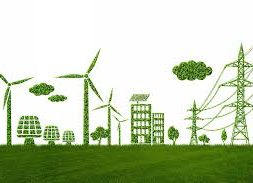
Taiwan Proposes 12 Net-Zero Strategies, Aiming to Reduce 24% of Greenhouse Gas Emissions by 2030 – EQ Mag
In March 2022, the National Development Council (NDC) in Taiwan announced the “Pathway to Net-Zero Emissions by 2050” campaign, planning to spend NTD 900 billion (approx. USD 29.27 billion) before 2030 to achieve net zero emissions and propose 12 major strategies later this year.
On December 28, the NDC disclosed its goal of greenhouse gas (GHG) emission reduction and nationally determined contributions by 2030. Specifically, GHG emissions in Taiwan will be cut by 24% in 2030 compared to 2005 levels. The council said it will also propose tax relief and subsidy packages for small- and medium-sized companies accordingly.
According to the resolutions agreed at the UN Climate Change Conference in 2021 (COP26), each country must, before late 2022, propose a plan to reduce GHG emissions and nationally determined contributions by 2030. Accordingly, Japan announced a plan to reduce GHG emissions by 46–50% before 2030 compared to 2013 levels, with South Korea aiming to cut the emissions by 40% compared to 2018 levels. On December 28, the Environmental Protection Administration in Taiwan announced a plan to reduce GHG emissions by 24±1% before 2030 compared to 2005 levels.
The 12 major strategies are associated with wind energy/PV, hydrogen, innovative energy, power systems and energy storage, electricity, carbon capture, utilization and storage (CCUS), carbon-free and electric vehicles, resource recycling and zero waste, carbon sinks, green lifestyle, green finance and just transition, of which the details are scheduled to be announced before Lunar New Year.
The Taiwanese government plans to spend NTD 900 billion before 2030 on reducing 72–76 million tons of GHG emissions, account for 29% of emissions produced by Taiwan in 2020. The program is expected to attract private investments totaling NTD 4 trillion (approx. USD 130 billion), produce an output valued at NTD 5.9 trillion (approx. USD 192 billion) and create 550,000 new jobs. Ming-hsin Kung, minister of the NDC, confirmed that the Directorate-General of Budget, Accounting and Statistics has drawn up a budget of NTD 68.2 billion (approx. USD 2.2 billion) for net zero tasks and submitted it to the Legislative Yuan (Congress) for approval. If the said major strategies can be adopted as planned, emissions can be reduced considerably. The government can at least achieve a 20% reduction of GHG emissions in 2030 and even hit the targeted 24% in the best-case scenario.
Kung emphasized that there will always be a better solution, so the NDC will continue negotiating with stakeholders. The council, as an authority responsible for devising, examining and approving critical national programs, will mandate the proposal of net zero concepts and deigns for all projects submitted in the future.
Regarding policies on GHG emission reduction for businesses, Kung clarified that the government will impose regulations on large enterprises and encourage smaller companies to follow these giant counterparts, so that small- and medium-sized companies can better adapt themselves to the net zero agenda. In addition to expanding support from the Ministry of Economic Affairs and Environmental Protection Administration, the government intends to provide more aids such as tax relief, improvement system subsidy and loan interest subsidy, which will be announced soon.
Kung indicated that big companies will be the first to follow the emission reduction plan. Meanwhile, the Ministry of Economic Affairs and Environmental Protection Administration will also provide assistance for small- and medium-sized companies—which have encountered challenges from smartification, low carbonization and net zero emissions—including consultation analysis and financial or loan-related aids.
To achieve net zero emissions by 2050, the government has amended 7 acts and 12 legal orders along with plans to develop biomass, geothermal, hydrogen and other renewable energy. Despite more budget for sectors of wind energy/PV and energy-saving vehicle, Taiwanese authorities intend to invest heavily into research and pilot experiments with hopes of developing new technologies through international partnerships in the next 8 years.
















